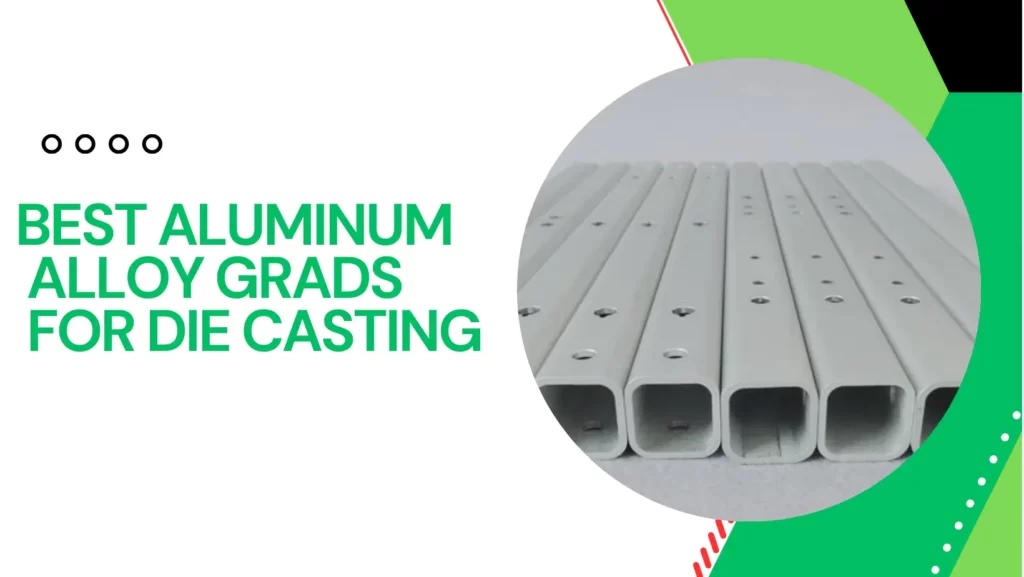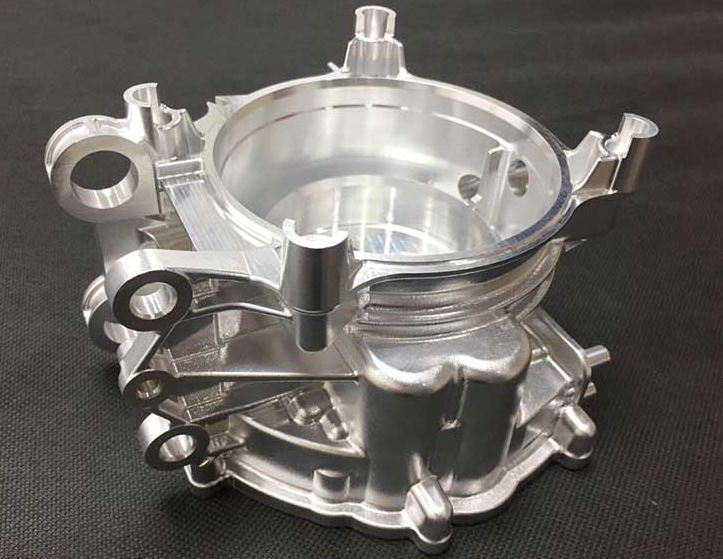Everything about Alcast Company
Everything about Alcast Company
Blog Article
Alcast Company - Truths
Table of ContentsThe 4-Minute Rule for Alcast CompanyHow Alcast Company can Save You Time, Stress, and Money.Some Known Questions About Alcast Company.Alcast Company - QuestionsThe Best Strategy To Use For Alcast CompanyAlcast Company Can Be Fun For Anyone
The refined difference hinges on the chemical material. Chemical Comparison of Cast Aluminum Alloys Silicon advertises castability by lowering the alloy's melting temperature level and boosting fluidity throughout casting. It plays an essential function in permitting elaborate mold and mildews to be filled precisely. Furthermore, silicon adds to the alloy's toughness and put on resistance, making it valuable in applications where toughness is critical, such as vehicle components and engine parts.It likewise boosts the machinability of the alloy, making it easier to refine right into completed items. In this way, iron adds to the overall workability of aluminum alloys.
Manganese adds to the stamina of aluminum alloys and improves workability (Aluminum Castings). It is typically used in wrought light weight aluminum products like sheets, extrusions, and profiles. The visibility of manganese aids in the alloy's formability and resistance to splitting throughout manufacture processes. Magnesium is a lightweight aspect that provides stamina and influence resistance to aluminum alloys.
Excitement About Alcast Company
It enables the production of light-weight elements with exceptional mechanical properties. Zinc boosts the castability of light weight aluminum alloys and aids regulate the solidification process throughout casting. It enhances the alloy's strength and hardness. It is typically found in applications where intricate forms and great details are needed, such as attractive castings and particular auto components.

The key thermal conductivity, tensile stamina, yield toughness, and prolongation differ. Select appropriate raw products according to the efficiency of the target product produced. Among the above alloys, A356 has the highest possible thermal conductivity, and A380 and ADC12 have the most affordable. The tensile restriction is the opposite. A360 has the most effective return stamina and the greatest elongation rate.
The Best Guide To Alcast Company

In accuracy casting, 6063 is appropriate for applications where elaborate geometries and top quality surface area coatings are vital. Instances include telecommunication units, where the alloy's superior formability enables for smooth and cosmetically pleasing styles while maintaining structural stability. In the Lights Solutions industry, precision-cast 6063 parts produce classy and efficient lights fixtures that require complex forms and excellent thermal performance.
The A360 shows remarkable elongation, making it optimal for complex and thin-walled elements. In accuracy casting applications, A360 is appropriate for industries such as Consumer Electronics, Telecommunication, and Power Devices.
3 Easy Facts About Alcast Company Explained
Its one-of-a-kind residential or commercial properties make A360 a useful choice for precision casting in these markets, enhancing product toughness and high quality. Aluminum Casting. Light weight aluminum alloy 380, or A380, is a widely utilized spreading alloy with numerous unique characteristics.
In precision spreading, light weight aluminum 413 shines in the Customer Electronic Devices and Power Devices sectors. It's frequently used to craft intricate components like mobile phone real estates, electronic camera bodies, and power tool housings. Its precision is exceptional, with limited resistances up to 0.01 mm, making certain flawless product setting up. This alloy's exceptional corrosion resistance makes it an excellent option for exterior applications, guaranteeing durable, long lasting items in the mentioned industries.
The Main Principles Of Alcast Company
The light weight aluminum alloy you pick will significantly influence both the casting process and the buildings of the last product. Due to the fact that of this, you have to make your choice thoroughly and take an enlightened technique.
Establishing the most suitable light weight aluminum alloy for your application will certainly indicate evaluating a wide variety of qualities. These relative alloy characteristics follow the North American Pass Away Spreading Association's standards, and we've split them right into 2 categories. The first category addresses alloy characteristics that influence the production procedure. The second covers qualities influencing about his the homes of the last product.
Indicators on Alcast Company You Should Know
The alloy you pick for die casting straight impacts numerous aspects of the spreading procedure, like how easy the alloy is to deal with and if it is prone to casting issues. Warm splitting, likewise recognized as solidification fracturing, is a typical die casting flaw for aluminum alloys that can cause internal or surface-level rips or cracks.
Specific aluminum alloys are much more susceptible to warm splitting than others, and your option should consider this. An additional usual issue discovered in the die spreading of light weight aluminum is die soldering, which is when the actors stays with the die wall surfaces and makes ejection tough. It can harm both the cast and the die, so you must search for alloys with high anti-soldering properties.
Deterioration resistance, which is currently a notable feature of light weight aluminum, can vary significantly from alloy to alloy and is a necessary particular to consider depending on the environmental conditions your product will be exposed to (Aluminum Castings). Put on resistance is an additional residential property typically looked for in light weight aluminum items and can distinguish some alloys
Report this page